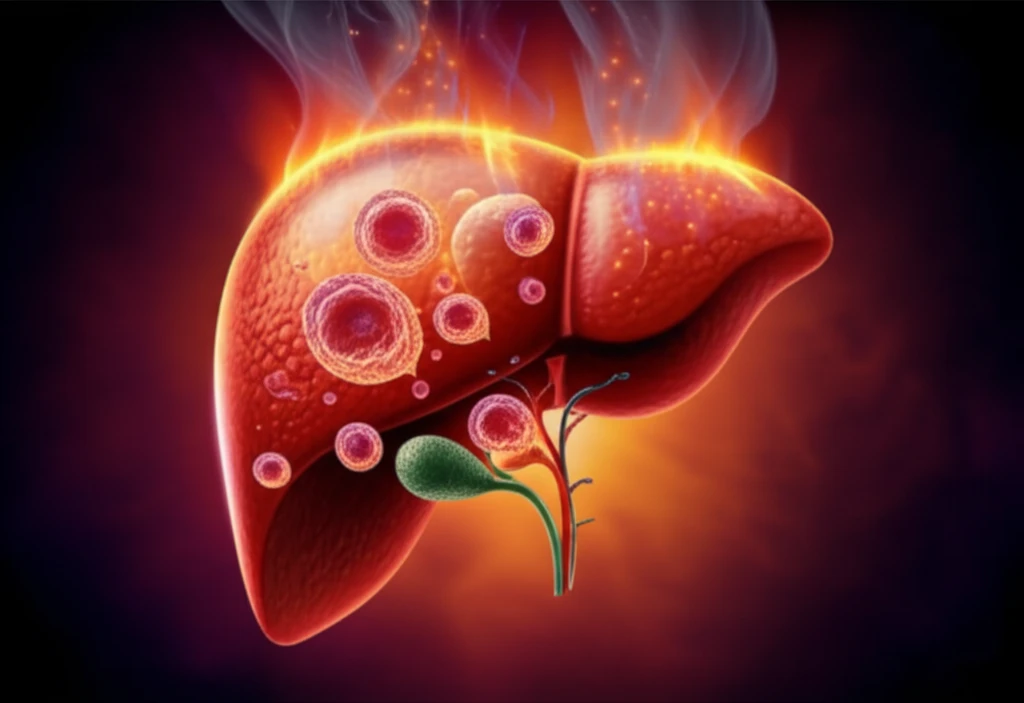
RFA: A Ray of Hope for Liver Metastasis from Gastric Cancer?
"Discover how Radiofrequency Ablation (RFA) offers new hope for treating liver metastasis originating from gastric cancer, potentially improving outcomes compared to traditional chemotherapy."
Gastric cancer remains a formidable global health challenge, ranking as the second most common cause of cancer-related deaths in Asia. The insidious nature of this disease often leads to metastasis, with the liver being a frequent site of secondary tumor development. In fact, recent data indicates that liver metastasis is the most common metastatic cancer in the north of Iran, underscoring the urgent need for effective treatment strategies.
Traditional approaches to managing liver metastasis from gastric cancer typically involve systemic chemotherapy, which aims to target cancer cells throughout the body. While chemotherapy can be effective in slowing disease progression, it often comes with significant side effects that can impact a patient's quality of life. Moreover, chemotherapy may not always be successful in eradicating liver tumors, particularly in cases where the lesions are resistant to treatment.
In light of these challenges, researchers have been exploring alternative treatment modalities for liver metastasis from gastric cancer. One promising approach is radiofrequency ablation (RFA), a minimally invasive technique that uses heat to destroy cancer cells. RFA has emerged as a potential alternative to traditional chemotherapy, offering the possibility of improved outcomes with fewer side effects. This article delves into a clinical trial investigating the efficacy of RFA in treating metastatic liver tumors originating from gastric cancer, shedding light on its potential as a valuable tool in the fight against this deadly disease.
RFA vs. Chemotherapy: Which Treatment Offers Better Outcomes for Liver Metastasis?

A randomized clinical trial was conducted to evaluate the efficacy of radiofrequency ablation (RFA) in treating metastatic liver tumors originating from gastric cancer. The study enrolled 43 patients with metastatic lesions, ensuring that each lesion was less than 5 cm in size. These patients were then randomly assigned to two treatment groups: one receiving chemotherapy and RFA (group A), and the other receiving chemotherapy alone (group B). The primary endpoint was to assess changes in tumor size and contrast enhancement via MRI.
- Complete Lesion Clearance: The results revealed a significant difference in treatment outcomes between the two groups. In group A (chemotherapy and RFA), 14 out of 21 patients (66.6%) achieved complete lesion clearance, indicating successful eradication of liver tumors.
- Chemotherapy Alone Ineffective: In stark contrast, none of the patients in group B (chemotherapy alone) experienced complete lesion clearance, underscoring the limitations of chemotherapy as a standalone treatment for liver metastasis from gastric cancer.
- Size Matters: Further analysis revealed that lesions smaller than 3 cm in size responded more favorably to RFA treatment, suggesting that RFA may be particularly effective for smaller liver tumors.
The Future of Liver Metastasis Treatment: RFA and Beyond
This study provides compelling evidence that RFA is a safe and effective treatment option for liver metastasis from gastric adenocarcinoma, especially when combined with chemotherapy. The therapeutic effect of chemotherapy in combination with RFA is more pronounced than systemic chemotherapy alone, particularly in lesions smaller than 3cm. As research continues to evolve, the integration of RFA into treatment protocols may offer hope for improved outcomes and enhanced quality of life for individuals battling this challenging condition.
